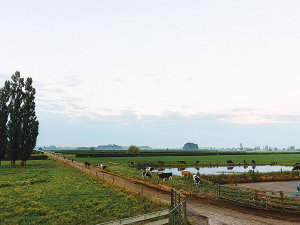Last week, Environment Minister David Parker released a report by a panel headed by retired Appeal Court Judge Tony Randerson which proposes that the Act, which has been in operation for thirty years, should be scrapped and replaced by two new laws – a Natural Built Environment Act and a Strategic Planning Act.
Its recommendations include a proposal for each region in the country to put forward a combined development plan, consolidating the myriad of local council plans that currently exist. At present there are about 100 policy statements and plans put up by local authorities and under the new proposal there would be just 14 combined regional and district plans.
The proposal would also see more power being given to iwi as set out in some subtle word changes. Currently plans have to ‘take into account’ the Treaty of Waitangi, whereas under the new proposal, plans have to ‘give effect’, meaning Treaty matters must be given greater weight.
Parker says a review of the resource management system was long overdue. He says the RMA has doubled in size from its original length has become too costly, takes too long, and has not adequately protected the environment.
“There are significant pressures on both the natural and built environments that need to be addressed urgently. Urban areas are struggling to keep pace with population growth and the need for affordable housing.
“Water quality is deteriorating, biodiversity is diminishing and there is an urgent need to reduce carbon emissions and adapt to climate change,” he says.
Parker says the report recommends greater use of national direction by the Environment Minister and a more streamlined process for council plan-making and a more efficient resource consent process.
Federated Farmers says it’s on board with the chorus of voices across diverse sector groups saying the RMA is broken and no longer fit for purpose.
Feds resource management spokesperson Karen Williams says what started off as a relatively simple, one-stop-shop piece of legislation formed 30 years ago to promote sustainable development and environmental protection has been chewed over so much it is no longer recognisable. Williams, who is Feds vice president, says the RMA has become unwieldy and cripplingly expensive.
“It creates huge hurdles for development and economic wellbeing, and struggles to provide the environmental outcomes everyone wants, including addressing cumulative effects. We are a little mystified why the Government is pushing ahead as we speak with changes to the RMA when they’ve admitted a fundamental overhaul of the legislation is overdue. But we must retain the existing requirement to balance economic, cultural, social and environmental outcomes so that the legislation can deliver what Kiwis need going forward in a very different world,” she says.
Williams says Feds would prefer the resource management legislation remain within one statute rather than be split up as proposed. She says it’s important that any new legislation sticks with its core ‘effects based’ principles.
“Water storage, and positive on the ground work such as restoration and enhancement of wetlands, are just two examples of environmental win/wins that are being impeded by the RMA as currently written and implemented.
“We certainly hope that the process of developing a new RMA framework is inclusive and enables parties to engage in robust and fair discussion,” she says.


















